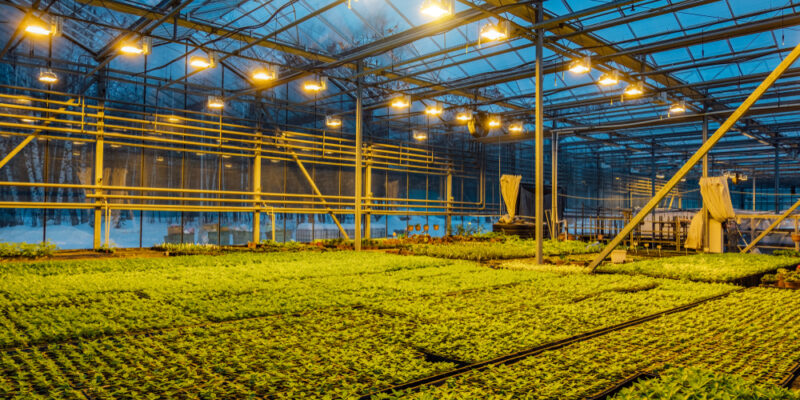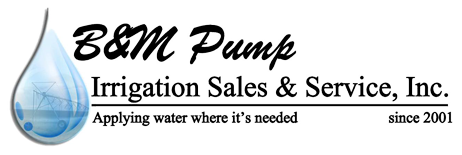
The Importance of Proper System Design for Efficient Irrigation
Efficient water management is vital in agriculture, landscaping, and urban planning. With global water resources becoming increasingly scarce, the need for efficient irrigation system design has never been more crucial. Proper irrigation not only conserves water but also enhances crop productivity, minimizes environmental impact, and optimizes resource use. In this article, we explore why robust system design is essential for achieving these goals and how irrigation experts contribute to the development of water-efficient farming systems.
Understanding Efficient Irrigation System Design
Efficient irrigation system design involves planning and implementing methods to deliver water to crops or landscapes in a way that minimizes waste while maximizing effectiveness. The process goes beyond simply laying pipes and sprinklers; it requires a deep understanding of factors such as soil type, crop requirements, climate, and water availability.
The Core Components of a Well-Designed System
- Water Source Management: Identifying reliable water sources is the foundation of efficient irrigation. Whether it’s surface water, groundwater, or reclaimed water, the system must align with the source’s capacity.
- Irrigation Methods: Techniques like drip irrigation, sprinkler systems, or subsurface irrigation need to be chosen based on the crop type and field conditions.
- Automation and Monitoring: Modern systems often incorporate technologies like soil moisture sensors and weather forecasting tools to adjust water delivery dynamically.
- Distribution Network: The layout and material of pipes, pumps, and emitters must be optimized for minimal energy use and leakage.
Why Proper System Design Matters
Optimizing Water Use
A well-designed system ensures water reaches the intended areas with minimal evaporation, runoff, or seepage. For example, irrigation experts advocate for precision techniques like drip irrigation in arid regions to deliver water directly to the plant roots, dramatically reducing waste.
Enhancing Crop Productivity
Water is a critical input for plant growth. When crops receive the right amount of water at the right time, they thrive. Conversely, overwatering can lead to root diseases, while under-watering stresses plants, reducing yields. Proper system design ensures that crops are watered consistently and appropriately.
Reducing Environmental Impact
Irrigation inefficiencies often lead to waterlogging, salinization, and nutrient leaching, harming the environment. Efficient systems help prevent these issues by delivering water in a controlled manner. Additionally, reducing energy consumption in pumping and distributing water lowers greenhouse gas emissions.
Economic Benefits
Farmers and landowners benefit financially from efficient systems. Reduced water usage translates to lower bills, while better yields and healthier crops increase profitability. Moreover, well-maintained systems last longer, reducing replacement costs.
Role of Irrigation Experts in System Design
Designing an irrigation system that balances efficiency, cost, and sustainability requires specialized knowledge. Irrigation experts bring valuable insights to the table:
- Site Assessment: Experts analyze topography, soil properties, and crop needs to determine the best irrigation method.
- System Customization: Based on the site’s unique characteristics, experts design systems tailored to maximize water efficiency.
- Technology Integration: From smart controllers to IoT-enabled sensors, professionals incorporate the latest tools to improve system performance.
- Maintenance Planning: Regular maintenance is crucial for long-term efficiency. Irrigation professionals help plan schedules for cleaning filters, repairing leaks, and updating equipment.
Best Practices for Designing Water-Efficient Farming Systems
Choose the Right Irrigation Method
Different crops and regions require different approaches:
- Drip Irrigation: Ideal for row crops, orchards, and vineyards, drip systems deliver water directly to the plant roots.
- Sprinkler Systems: Suitable for lawns and some field crops, these systems simulate rainfall and provide uniform coverage.
- Subsurface Irrigation: Best for areas with sandy soil, this method involves underground pipes that minimize evaporation.
Leverage Technology
Modern irrigation systems can significantly boost efficiency when integrated with technology:
- Soil Moisture Sensors: These sensors provide real-time data on soil water levels, helping to avoid over- or under-watering.
- Weather-Based Controllers: Smart controllers adjust irrigation schedules based on weather forecasts, ensuring water use matches climatic conditions.
- Automated Valves and Timers: Automating water delivery reduces human error and ensures consistent application.
Consider Environmental and Economic Factors
When designing a system, it’s essential to account for both environmental sustainability and economic viability:
- Opt for renewable energy-powered pumps (e.g., solar) to reduce operational costs and carbon footprint.
- Use materials that are durable yet cost-effective, ensuring the system remains functional without frequent replacements.
- Plan for scalability, enabling the system to adapt to future changes in land use or water availability.
Challenges in Implementing Efficient Irrigation Systems
Despite the benefits, designing and implementing an efficient irrigation system isn’t without challenges:
Limited Resources
Access to high-quality materials, advanced technology, and reliable water sources can be limited, especially in developing regions. Addressing these issues requires innovative, low-cost solutions tailored to local conditions.
Knowledge Gaps
Many farmers lack the technical expertise to implement or maintain sophisticated systems. Training programs and advisory services from irrigation experts can bridge this gap.
Climate Variability
Unpredictable weather patterns due to climate change can disrupt water availability. Systems must be flexible and resilient to adapt to these changes, emphasizing the need for robust design and forecasting tools.
Success Stories in Water-Efficient Farming Systems
India: Micro-Irrigation Revolution
In India, the widespread adoption of drip and micro-irrigation systems has transformed agriculture in water-scarce regions. These systems have reduced water consumption by up to 40% while increasing crop yields.
Israel: A Global Leader in Efficiency
Israel has pioneered water-efficient farming systems through innovation. Advanced technologies like desalination and precision irrigation have enabled the country to achieve high agricultural productivity despite limited freshwater resources.
United States: Smart Irrigation in California
California’s agriculture sector, facing severe droughts, has embraced smart irrigation systems. By using IoT-based sensors and weather-adaptive controllers, farmers have significantly improved water use efficiency.
The Future of Efficient Irrigation System Design
As the global population grows, so does the demand for food and water. Innovations in irrigation technology will play a pivotal role in meeting these needs sustainably:
- AI-Driven Systems: Artificial intelligence can predict water requirements based on historical data and real-time conditions, optimizing irrigation schedules.
- Nanotechnology in Water Distribution: Nano-coatings and materials can minimize water loss in pipes and emitters.
- Policy and Subsidy Support: Governments and organizations must promote efficient irrigation through subsidies, awareness campaigns, and regulations.
Conclusion
Proper system design is the cornerstone of efficient irrigation system design. By prioritizing water conservation, enhancing productivity, and reducing environmental impact, these systems are essential for sustainable agriculture and landscaping. The expertise of irrigation experts and advancements in technology are driving the evolution of water-efficient farming systems, ensuring that we can meet the challenges of a changing world with innovation and resilience. Whether you are a farmer, landscaper, or policymaker, investing in efficient irrigation is a step toward a sustainable future.
Need an Irrigation System Company in Seminole, TX?
Welcome to B&M Pump Irrigation Sales & Service, Inc.! We are your professional irrigation specialist! Our typical services include complete pump service, water well service, system design, and pivot systems. We deliver personal service and reliability to our customers in Texas, Oklahoma, New Mexico, and Arizona. No matter where you are in the southwest, B&M Pump Irrigation Sales & Service, Inc., is a name you can trust. We strive to educate owners and operators on making pumps and motors last longer and work more efficiently. We sell good quality products at a fair price and stand behind the products we sell. Give us a call today to speak with one of our service experts today!
Categorised in: Irrigation
